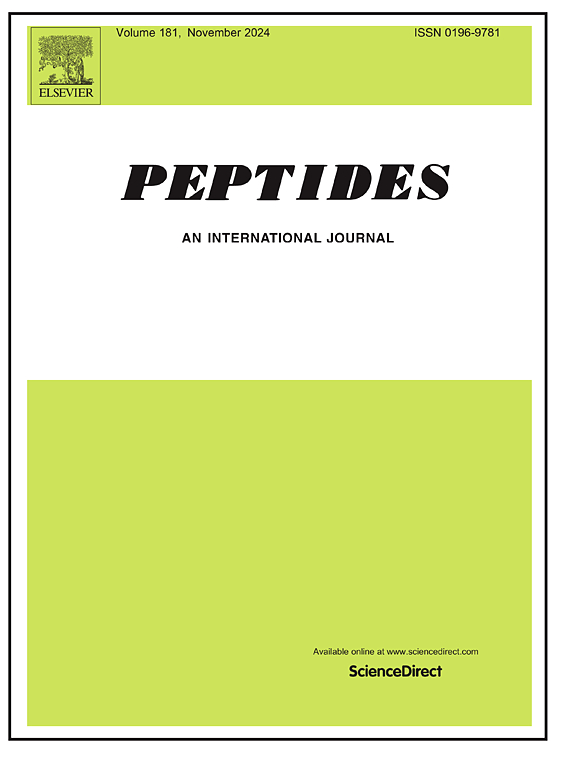PACAP通过抑制Sp1/AQP1通路抑制脓毒症相关急性肺损伤。
IF 2.9
4区 医学
Q3 BIOCHEMISTRY & MOLECULAR BIOLOGY
引用次数: 0
摘要
脓毒症引起的急性肺损伤(ALI)是一种严重的病理状态,其特征是炎症失控、氧化还原失衡和肺泡-毛细血管屏障破坏。在这里,我们评估垂体腺苷酸环化酶激活多肽(PACAP)在小鼠脓毒症- ali模型中的治疗潜力。PACAP治疗显著改善了组织损伤,减少了氧化应激生物标志物,减轻了炎症过程,包括中性粒细胞积累和促炎细胞因子释放。分子分析显示,pacap介导的水通道蛋白-1 (AQP1)和特异性蛋白1 (Sp1)下调,这是肺泡液稳态和炎症信号的关键调节因子。基因Sp1过表达消除了PACAP诱导的AQP1抑制,验证了Sp1/AQP1信号通路是PACAP保护作用的关键介质。此外,对RAW 264.7巨噬细胞的体外MTT试验表明,PACAP在生物学相关水平上具有低毒性。这些发现证明了PACAP通过调节Sp1/AQP1轴对脓毒症ali的治疗前景。本文章由计算机程序翻译,如有差异,请以英文原文为准。
PACAP inhibits sepsis-associated acute lung injury by inhibiting the Sp1/AQP1 pathway
Sepsis-induced acute lung injury (ALI) represents a severe pathological state marked by uncontrolled inflammation, redox imbalance, and alveolar-capillary barrier breakdown. Here, we evaluated the therapeutic potential of pituitary adenylate cyclase-activating polypeptide (PACAP) in a murine sepsis-ALI model. PACAP treatment notably ameliorated histological damage, reduced oxidative stress biomarkers, and mitigated inflammatory processes, including neutrophil accumulation and pro-inflammatory cytokine release. Molecular analysis revealed PACAP-mediated downregulation of Aquaporin-1 (AQP1) and specificity protein 1 (Sp1), key regulators of alveolar fluid homeostasis and inflammatory signaling. Genetic Sp1 overexpression abrogated PACAP-induced AQP1 suppression, validating the Sp1/AQP1 signaling pathway as a critical mediator of PACAP’s protective effects. Additionally, in vitro MTT assays on RAW 264.7 macrophages demonstrated that PACAP has low toxicity at biologically relevant levels. These findings demonstrate PACAP’s therapeutic promise for sepsis-ALI through modulation of the Sp1/AQP1 axis.
求助全文
通过发布文献求助,成功后即可免费获取论文全文。
去求助
来源期刊

Peptides
医学-生化与分子生物学
CiteScore
6.40
自引率
6.70%
发文量
130
审稿时长
28 days
期刊介绍:
Peptides is an international journal presenting original contributions on the biochemistry, physiology and pharmacology of biological active peptides, as well as their functions that relate to gastroenterology, endocrinology, and behavioral effects.
Peptides emphasizes all aspects of high profile peptide research in mammals and non-mammalian vertebrates. Special consideration can be given to plants and invertebrates. Submission of articles with clinical relevance is particularly encouraged.
 求助内容:
求助内容: 应助结果提醒方式:
应助结果提醒方式:


